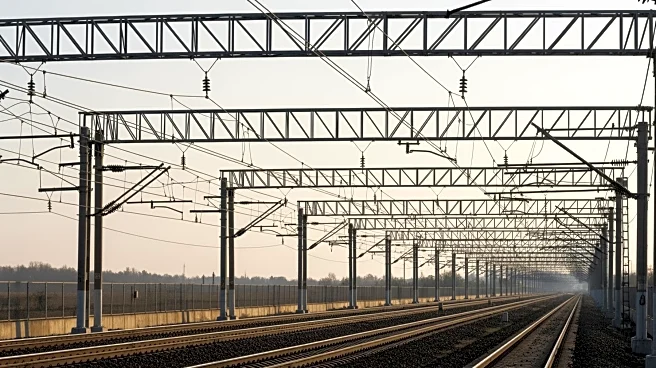What's Happening?
Utilities across the United States are considering the construction of new gas plants as a solution to rising electricity prices and reliability concerns. However, recent analysis by GridLab and other
energy research groups suggests that this approach could further increase costs. The cost of constructing new gas plants has risen significantly, with recent projects reporting costs of $2,000 per kilowatt, compared to previously lower estimates. This increase is attributed to outdated cost assumptions and rising prices for acquiring existing gas assets. The analysis indicates that utilities could invest in solar and storage solutions for similar costs, which would avoid long-term fuel and carbon cost risks.
Why It's Important?
The decision to rely on new gas plants could have significant implications for energy affordability in the U.S. As electricity prices continue to rise, consumers may face higher bills if utilities pursue costly gas projects. This could disproportionately affect low-income households and communities near data hubs, where energy demand is high. Additionally, the environmental impact of increased gas reliance could hinder efforts to transition to cleaner energy sources. Policymakers and regulators must consider alternative solutions, such as renewable energy and demand-side management, to ensure a sustainable and affordable energy future.
What's Next?
Utilities and regulators are expected to continue evaluating their energy strategies, with some states potentially revising their integrated resource plans to incorporate more renewable energy options. The ongoing debate over energy affordability and reliability will likely influence future regulatory decisions and investments in the energy sector. Stakeholders, including consumers, environmental groups, and industry leaders, will play a crucial role in shaping the direction of U.S. energy policy.









